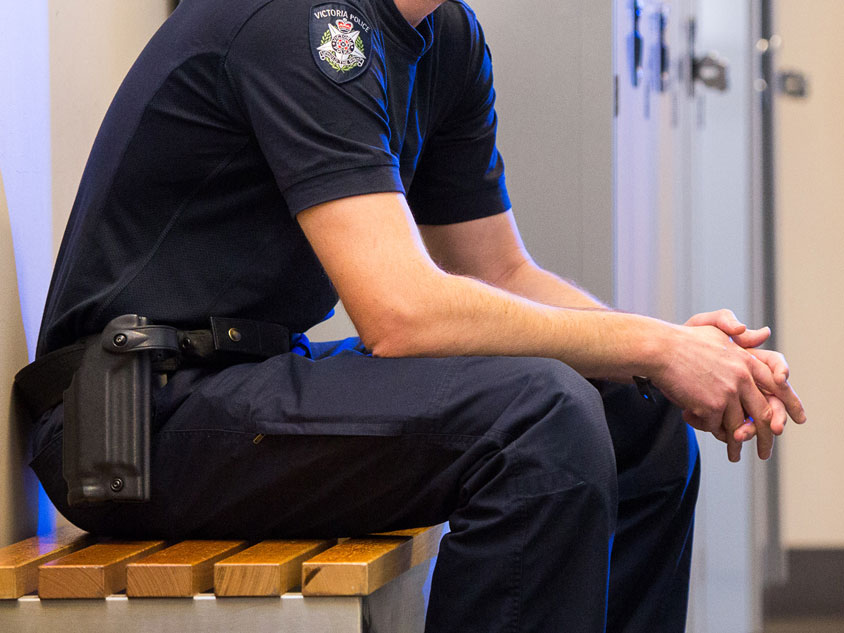Depression, mood disorders & anxiety all part of ‘police stress.’ Mental & emotional support can help
A growing problem
As a society, we’ve somehow accepted stress as a part of life.
Depression and anxiety have made the list of the top six chronic health issues affecting Australians – collectively affecting 13.8% of the population.
But that, all-too-familiar, ‘fight or flight’ state, is chronic for certain groups of people.
Can you think of more cortisol-spiking situations than those police and emergency staff endure daily?
High-speed chases, physical altercations, experiencing trauma and loss, protecting a community, and saving lives. It goes further than stress and depression.
Police officers face a significantly higher risk of suicide.
Many of these cases are males, which is a reflection of the tough, “I’m fine” deflection, synonymous with male officers.
Guns downs
We assume that home invaders, speeders and unruly citizens pose the danger. Yet, studies have uncovered the psychological issues from repeated exposure to lower level stresses.
These include:
- Bureaucratic management styles
- Insensitivity to personal distress
- Unfair decision-making by management
- Arbitrary rules
- Poor consultation with staff
- Constantly shifting priorities
- Increased workload
- Shift work
- Erratic work hours
- Long periods of repetitive work
- Carrying out work for which officers are not adequately trained
John Marx, author of Amor Your Self, talks about police stress extensively. “2-6 times more officers kill themselves, than those lives lost by the bad guys." Marx refers to this as “the dangers that don’t kill you.”
Sadly, it only gets worse the longer an officer serves.
So, once they reach their 50’s, after decades of compounded stress, police are a high-risk for depression, PTSD, and suicide.
Add to this the high rates of depression between ages 40-60 and the transition through menopause, for women.
One in three women in their 50s experiences stress incontinence – a deeply embarrassing situation for officers and staff who are on-the-go.
This stage in life is often dedicated to service – protecting the community, raising teenage children, and caring for elderly parents.
Physical, Mental, Emotional & Spiritual (PMES) strategies
When it comes to managing police stress, pay attention to your physical, mental, emotional and spiritual wellbeing.
Part of being in law enforcement means going into harm’s way and facing criminals.
Officers see the worst side of humanity, and therefore, it’s absolutely imperative to have a plan to emotionally handle these situations – to develop healthy ways to cope.
Don’t forget the key pillars for wellness: get enough sleep, eat a proper diet, exercise (for both physical and mental strength), and spend time with your loved ones.
Police Health provides a wide sweep of services to help you – including Exercise Physiology, Dietitians, Psychologists, Counsellors, Acupuncture and Complementary Therapies.
You’re not alone. You have your Blue family, and us.
Cover like no other
Police Health understands the unique health needs of the police community, because we’ve been looking after them for over 85 years.
Whether you’re already a member, or interested in becoming one, call us to find out how to get the most out of our cover and benefits. We’re here to help.
